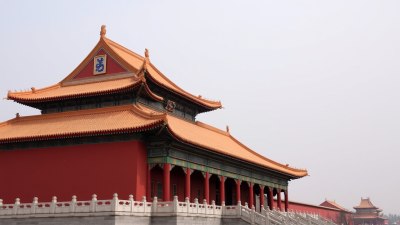The Freedom of Not Needing to Know
Explore the liberating concept of not needing to know everything in today's information age.

Image created with Flux Schnell
In today's fast-paced world filled with endless information and instant accessibility, the mantra of 'knowing everything' has become a heavy burden. As we rush to be informed and to stay ahead in various domains, the idea of not needing to know everything can be a surprisingly liberating thought. This article delves into the freedom found in embracing ignorance, choosing not to engage with every piece of information that floods our senses, and how this choice can lead to more meaningful living.
The Burden of Information
The digital age has brought unprecedented access to information. News updates, social media, educational resources, and much more can be accessed at our fingertips. While this seems advantageous, it often leads to an overwhelming amount of data, leaving many feeling anxious and burdened by the need to remain informed. This constant, sometimes compulsive consumption of content can have various cognitive and emotional consequences. Studies suggest that the need to constantly update ourselves leads to a feeling known as 'information overload,' where the brain struggles to process the excess information, often resulting in stress and anxiety.
Understanding the Concept of Ignorance
Embracing the concept of ignorance isn't about advocating for a lack of knowledge or awareness. Instead, it’s about recognizing the limits of our own capacities and letting go of the societal pressure that demands we know everything. Accepting that we do not need to keep up with every piece of news or trend can provide us with mental peace and help us focus on what truly matters to us as individuals.
The Power of Selective Information
Rather than prioritizing the acquisition of knowledge as a goal in itself, we can choose to be more selective about the information we consume. By identifying our interests and values, we can only engage with information that contributes positively to our lives. This selective approach not only reduces stress but also ensures that the knowledge we seek adds value and relevance to our personal and professional lives. Furthermore, the practice of selective information consumption encourages deeper exploration and engagement with subjects that truly resonate with us.
Freedom and Mental Health
Not needing to know every detail fosters a sense of freedom, allowing us to let go of comparisons and unrealistic expectations. When we stop fixating on the need for comprehensive knowledge, we free ourselves from the anxiety of 'not knowing.' This acceptance can cultivate better mental health by reducing stress and fear of missing out (FOMO), promoting a more balanced life. Those who adopt this freedom often report feeling lighter, less anxious, and more content with their existence.
Time and Attention Management
The modern information landscape often requires us to compete for our attention. Social media networks, email notifications, and news alerts can demand our focus at all hours. In understanding the freedom of not needing to know, we can better manage our time and attention. By limiting engagement with continuous news cycles or social media updates, we can reclaim our time for more fulfilling activities. Leisure reading, engaging conversations, or pursuing hobbies become more achievable when we allow ourselves the freedom not to chase every piece of information.
Mindfulness and Presence
Choosing not to know everything also intersects beautifully with mindfulness. Mindfulness practices encourage us to be present in the moment, focusing on the here and now rather than getting lost in the past or future. When we recognize the value of selective knowledge, we can practice mindfulness more effectively. This realization leads us to enjoy the present without the nagging worry of what we might be missing. Engaging in activities such as meditation or mindful walks can help amplify this sense of presence, reinforcing our commitment to living a life focused on experiences rather than distractions.
Building His or Her Own Narrative
One of the most profound aspects of believing in the freedom of not needing to know is the opportunity it gives us to create our own narratives. In a world saturated with information, we often find ourselves influenced by external sources that dictate what is significant or relevant. Letting go of this need to know everything empowers us to mold our own perspectives. We can explore topics that ignite our passion, fostering a more personalized and enriching narrative that reflects our journey rather than just an echo of widely accepted knowledge.
The Role of Community and Connection
When we embrace the freedom of not needing to know, we also invest in our community and relationships. By focusing less on gathering information and more on our connections with people, we create deeper and more meaningful bonds. Engaging in conversations about various topics, sharing experiences, and learning from one another often yields richer insights than solitary knowledge accumulation. Investing in our relationships helps us appreciate the value of collective wisdom while letting go of the pressure to be 'in-the-know' at all times.
The freedom of not needing to know everything is a crucial realization in our information-saturated world. It allows us to curate our experiences, prioritize our mental health, foster strong relationships, and embrace the present moment with clarity. Through selective information consumption, we can focus on what truly matters while letting go of the incessant desire to be constantly informed. Ultimately, by embracing this freedom, we discover a path to a more fulfilling and balanced life—one that values quality over quantity in knowledge consumption.











